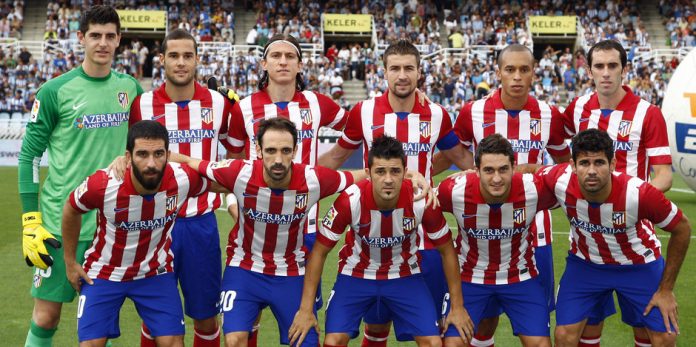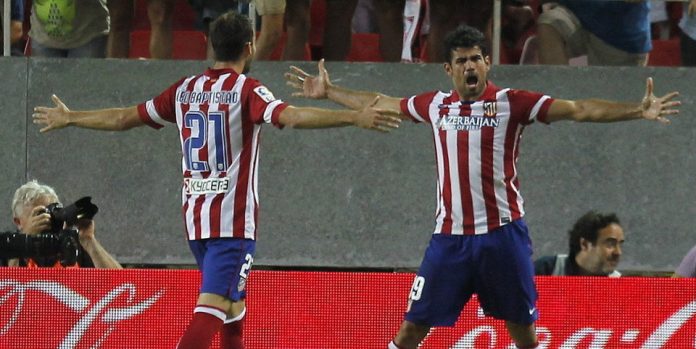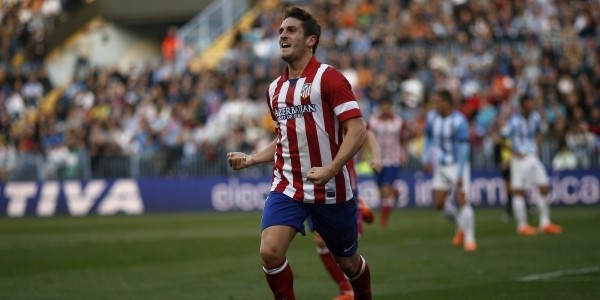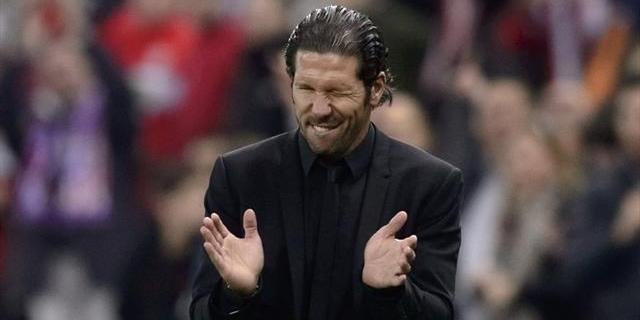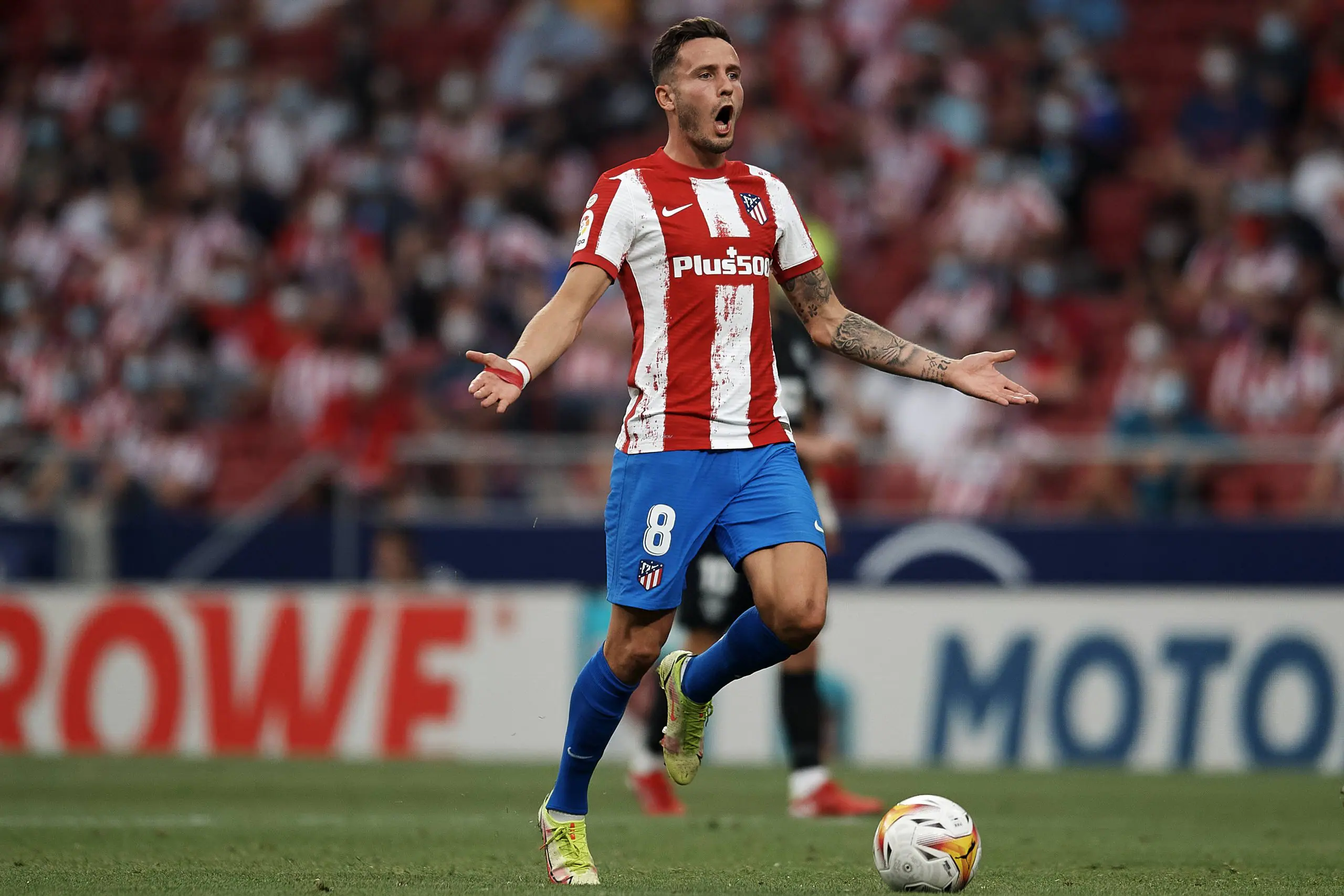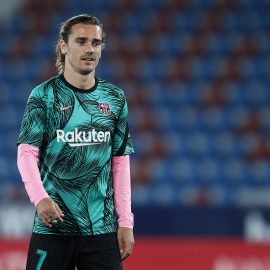Jose Mourinho and Chelsea will face a unique challenge in the Vicente Calderon in the semi-finals of the Champions League on Tuesday night, as they come up against an Atletico Madrid side whose strengths are much the same as their own; tactically disciplined, physically imposing, counter-attacking and mentally strong.
Essentially, Chelsea will be looking into a Spanish-tinted mirror on Tuesday, and they may not like what they see.
Mourinho has thrived in Europe because the opposition he faces in the Champions League often play into his strengths as a manager. The Portuguese boss is exceptional at planning for the big games, the matches where his side can rely on their discipline, structure and both physical and mental toughness to grind out results against opposition that like to dominate the ball and push numbers forward in attack.
This has been true of Chelsea this season, who have put on strong performances in the big matches, but have been below par against smaller sides where the emphasis is on them to attack and be creative.
If Chelsea had been drawn against Bayern Munich or Real Madrid, then Mourinho would have been able to rely on his usual defensive-minded, counter-attacking gameplan that he so often uses in the big matches. Instead, he is faced with a side that likes to do all of the things his Chelsea team do, except they do them better.
Narrow Atleti
The strength of Diego Simeone’s men is undoubtedly their ability to defend. Atletico boast the strongest defence in all of Europe, having conceded only 22 goals this season and it is down to the discipline and work-rate Simeone has been able to instill into his players.
Atleti have lined up in a very narrow 4-4-2 formation for much of the season (along with 4-4-1-1) and their narrowness has been a key aspect in why they have been so effective defensively.
Since Atleti play with only two central midfielders, it would be natural to think that they would consistently get overrun in the midfield whenever playing against a three-man midfield. However, they have been able to counter this by having the strikers drop deep into the midfield to apply pressure on the holding midfielders, while the wide players (who are attacking central midfielders instead of wingers) stay very narrow and close to the two central midfielders so that they can pinch in when necessary.
This means that it is very difficult to play through the middle, as players are closed down by multiple Atleti defenders when they receive the ball in the midfield. This forces their opposition to try and play down the flanks, where you will see the whole Atleti team shift simultaneously towards the flank where their opposition is trying to play.
Atleti’s ability to squeeze the pitch is one part of their defensive solidity, and the other is their aggressiveness. Atleti put in more tackles than any other side in La Liga, with midfielder and captain Gabi leading the way with 110 tackles this season, the second most in Europe.
The Spanish side’s aggressiveness tests not only talent, but temperament. Atleti thrives on games that are physical, bitty, and even downright dirty. Their defensive pressure and physicality will be a major test of the Chelsea’s technical ability and composure.
Atleti in attack
In a match-up of strong defences, it will likely be the side with the better quality in attack who is able to advance.
While the La Liga leaders are very narrow when defending, they blossom out when in attack.
The wide-midfielders are still relatively narrow, allowing the fullbacks to push up and create the attacking width. Indeed, Atleti’s strength is attacking down either flank where they can create overloads against opposition fullbacks. The Chelsea wide-players are going to be crucial in this aspect, as any lapse in concentration could see their fullback exposed to a 2-on-1 or even 3-on-1 situation.
Atleti are very intelligent with their movement around the 18 yard-box, creating the overloads as previously mentioned which often draw players away from the middle of the area, leaving space for Atleti’s strikers. Indeed, a crucial part of their attacking play is the high number of “dummy runs” made by players on the flanks in an attempt to draw at least one defender out of position, creating space to attack or cross.
Atleti are much like a traditional English team in that they put an emphasis on crossing and set-pieces. 22 of their 74 goals this season have come via a set-piece (stat via Squawka) and both fullbacks and wide-midfielders put in a high number of crosses per-match. This should play into Chelsea’s hands as they have conceded only six headed goals this season, but Atleti’s ability in the air cannot be underestimated as they have scored an impressive 15 headers this season (stat via Squawka).
The Problem of Koke
While much of the attention will be on the match-up between the Atleti strikers and Chelsea centre-backs, the decisive factor could be how well Chelsea is able to contain Koke.
The 22-year-old has scored six goals and added a Europe-leading 13 assists in all competitions this season, and his positioning could create serious problems for the Blues defence.
While Koke starts on the left, he often plays very narrow, drifting towards the centre of the midfield where he can help his two central-midfielders. This creates an issue for right-backs because it potentially leaves them with no one to mark. If they decide to track him inside, then they leave the flank open to the Atleti left-back to exploit, but if they fail to track him, then Koke has no natural marker in the midfield and would have the ability to roam.
With Koke’s exceptional ability to read and pick the correct pass, he could create the most problems for Mourinho and his men.
Conclusion
Simeone has been quoted as saying that Mourinho has been one of his central inspirations in the way he manages his team, and it clearly shows. Chelsea are not used to teams who can match them in terms of physicality and aggressiveness, and Atleti’s intensity will be up a notch as they play in the club’s biggest match for 40 years.
If Mourinho is without the creative talents of Eden Hazard for the first leg, then the challenge of breaking down Atleti’s defence will become that much harder as their Spanish opposition will try to put them in the position of being forced to put numbers forward in attack.
Expect Atleti to start the match much in the same way against Barcelona, pressing Chelsea relentlessly in the hopes of getting an early goal that will put the tie firmly in their favor and the incentive on Chelsea to take risks.
What do you think? Can the Blues topple Atletico Madrid? Get involved in the comments below…
Add Sportslens to your Google News Feed!


